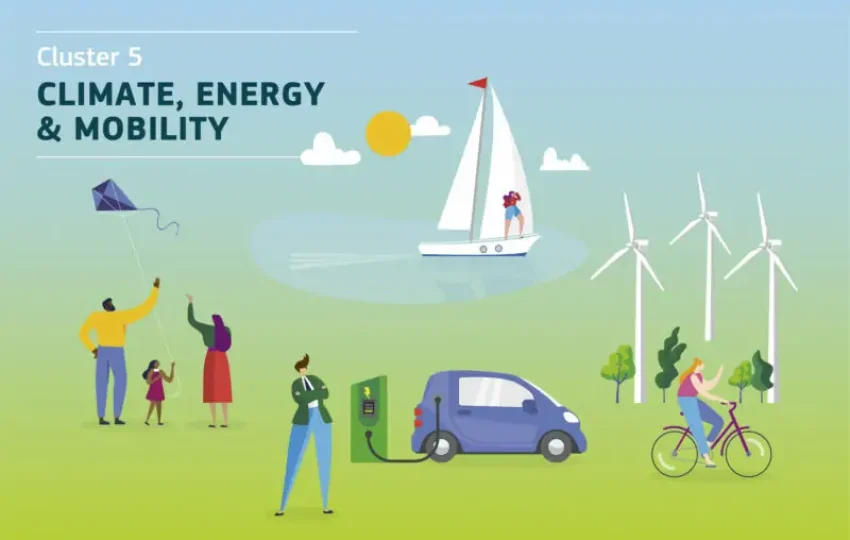Navigating the world of EU funding can feel overwhelming, especially with the abundance of programmes and highly competitive calls for proposals. Securing an EU grant needs more than just a good idea. It requires strategic planning and a thorough understanding of the application process. In this blog post, we’ll share our top 10 tips to help you successfully apply for EU funding and enhance your chances of securing that crucial grant.
Essential Tips for Applying to EU Funding Calls
Tip 1: Understand the Funding Programme
First things first, get to know the various EU funding programmes. Each programme has specific goals and priorities. For instance, Horizon Europe focuses on research and innovation, while Erasmus+ is geared towards education and training. Ensure your project aligns with the programme objectives you’re applying to. This alignment is crucial for your application’s success when applying to EU funding calls.
Tip 2: Thoroughly Read the Call for Proposals
Reading the call for proposals is essential, not just a formality. Each call has detailed guidelines and requirements. Pay close attention to eligibility criteria, evaluation metrics, and submission deadlines. Missing a small detail can lead to disqualification. Highlight key sections and make notes to comply with all requirements when applying to EU funding calls.
Tip 3: Develop a Clear and Compelling Project Idea
Your project idea should be well-defined and compelling. It’s important to clearly articulate your project’s objectives and how they align with EU priorities. A strong project idea addresses a specific need or problem and proposes an innovative solution. Use real-world examples to illustrate the potential impact of your project when applying to EU funding calls.
Tip 4: Build a Strong Consortium
Partnerships can make or break your application. A strong consortium brings together diverse skills and expertise. When selecting partners, look for complementary strengths and a shared vision. Clearly outline the role of each partner in your proposal. Demonstrating a balanced and capable consortium can significantly boost your chances of success.
Looking for partners to strengthen your consortium? Check out our blog post on 5 Tips to Find Partners for Your Project Proposal for expert advice and practical strategies!
Tip 5: Prepare a Detailed Work Plan
Break your project into manageable work packages and set realistic timelines. A detailed work plan shows that you’ve thought through the implementation of your project. Use tools like Gantt charts to visually represent your timeline and milestones. This helps in planning and reassures evaluators of your project’s feasibility.
Tip 6: Focus on Impact
The impact is a key evaluation criterion for many EU funding programmes. Clearly articulate your project’s potential benefits. Discuss how your project will create long-term positive change. Use metrics to measure impact and include examples of high-impact projects. Demonstrating a significant and measurable impact can set your proposal apart.
Tip 7: Budget Wisely
A well-thought-out budget is essential. Detail your budget allocations across different activities and ensure they are realistic. Avoid common pitfalls like underestimating costs or over-allocating funds to non-essential activities. A transparent and balanced budget reassures evaluators of your project’s financial viability.
Tip 8: Write Clearly and Concisely
Clarity and coherence are paramount. Avoid jargon and complex language that can obscure your message. Write in a way that is easy to understand. Your proposal should be clear, concise, and compelling. An easy-to-read application can make a positive impression on evaluators.
Tip 9: Seek Expert Advice
Don’t hesitate to seek help from consultants and advisors who specialise in EU funding. They can provide valuable insights and guidance. Attend workshops and training sessions to enhance your understanding of the application process. Leveraging expert advice can significantly improve the quality of your proposal.
Tip 10: Review and Revise
Before submission, meticulously review your proposal. Proofread for any errors and seek feedback from peers and mentors. A fresh set of eyes can catch mistakes you might have overlooked. Use a final checklist to ensure all requirements are met. A well-reviewed proposal is more likely to succeed.
Conclusion
Securing EU funding can open up incredible opportunities for your project, but it requires meticulous planning and a strategic approach. By understanding the specific funding programme, developing a compelling and clear project idea, building a strong consortium, and preparing a detailed work plan, you can significantly enhance your chances of success. Remember to focus on the impact, budget wisely, write clearly, seek expert advice, and always review and revise your application thoroughly.
If you found these tips helpful, check out our pricing plans to see how EUcalls can assist you further in finding and applying to EU funding calls. Additionally, explore our new services, InnovateU for training and consultancy and InnovateBiz for business innovation support. Let’s unlock the potential of your projects together!


